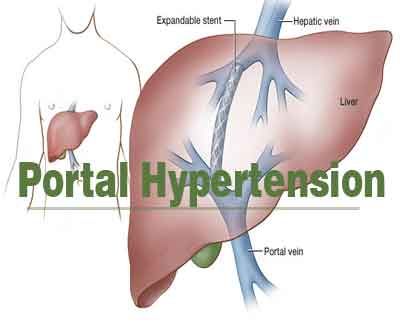- Home
- Editorial
- News
- Practice Guidelines
- Anesthesiology Guidelines
- Cancer Guidelines
- Cardiac Sciences Guidelines
- Critical Care Guidelines
- Dentistry Guidelines
- Dermatology Guidelines
- Diabetes and Endo Guidelines
- Diagnostics Guidelines
- ENT Guidelines
- Featured Practice Guidelines
- Gastroenterology Guidelines
- Geriatrics Guidelines
- Medicine Guidelines
- Nephrology Guidelines
- Neurosciences Guidelines
- Obs and Gynae Guidelines
- Ophthalmology Guidelines
- Orthopaedics Guidelines
- Paediatrics Guidelines
- Psychiatry Guidelines
- Pulmonology Guidelines
- Radiology Guidelines
- Surgery Guidelines
- Urology Guidelines
Sivelestat is new potential therapy for portal hypertension

The drug sivelestat may effectively lower portal hypertension, improving symptoms and outcomes for those patients, according to a new study by Mayo Clinic researchers.
It is a potentially life-threatening condition associated with cirrhosis and other chronic liver diseases.The study has been posted in March on Gastroenterology, the online journal of the American Gastroenterological Association.
Portal hypertension is associated with cirrhosis and other chronic liver diseases. There is an increase in pressure within the portal vein that carries blood from abdominal organs to the liver.Unfortunately options have been limited for treating portal hypertension.
According to the study, the drug sivelestat may effectively lower portal hypertension, improving symptoms and outcomes for those patients. The study results were obtained from mouse models but have since been confirmed in liver samples from humans, according to Vijay Shah, M.D., a Mayo Clinic gastroenterologist and senior author.
"This was an exciting confirmation of our findings and their applicability to human disease," Dr. Shah says. "Sivelestat has been safely used in humans with acute lung injury and bronchopulmonary dysplasia. This suggests that sivelestat and similar drugs constitute a potential means to decrease portal hypertension in patients with chronic liver disease."
The Mayo study showed that deposits of fibrin -- microvascular blood clots -- contributed to portal hypertension, and inflammatory cells known as neutrophils contributed to the formation of fibrin. By inhibiting neutrophil function with sivelestat, they were able to decrease portal hypertension.
"Neutrophils had not previously been identified as significant drivers of portal hypertension," says Moira Hilscher, M.D., the paper's first author. Results were verified in two different models of chronic liver disease.
"The study paves the way for developing new drugs and repurposing of existing compounds to target inflammation in the liver driven by disease-related mechanical forces," says Dr. Hilscher. "Given the increasing prevalence of advanced liver disease due to alcohol and obesity, this is clearly an unmet need."

Disclaimer: This site is primarily intended for healthcare professionals. Any content/information on this website does not replace the advice of medical and/or health professionals and should not be construed as medical/diagnostic advice/endorsement or prescription. Use of this site is subject to our terms of use, privacy policy, advertisement policy. © 2020 Minerva Medical Treatment Pvt Ltd